The eastern portion of the Congo has been in conflict off and on since 1996, and with 5.4 million people dead, it is the bloodiest conflict since World War II. A city of around a million people, Bukavu has historically been a bit safer than the outlying regions, so many people (particularly the victims of violence) have moved toward its relative safety. Panzi Hospital was founded by a gynecologist to specialize in treating the many victims of sexual assault that have settled in the area of Panzi, a poor outlying region of Bukavu. The hospital’s founder, Denis Mukwege, has won numerous awards for his work at Panzi, not only helping the women heal their physical wounds, but providing psychological care and teaching them new trades to help support themselves.
The women of Panzi (and much of the eastern Congo) have often watched their husbands be killed, suffered sexual assault (often in front of their children), and been rejected by their community as unclean. In spite of all this, these women persevere, often seeking treatment for their wounds, and continue to earn subsistence-level wages by carrying heavy loads of goods from small farms on the outside of the city in toward the markets. They carry on with physical and psychological scars, and when we heard of the work of Panzi Hospital and a local church to help these women, we wanted to be a part.
We see combat veterans at our private practice for a national program called Homecoming for Veterans, where we give free neurofeedback to those with service-related PTSD or head injuries. Because of our success treating PTSD, my father and I felt called to try to help these women. After hearing about this situation from a missionary in our church, we initiated contact with the head of a local church that is working with these women. In May, Lanny and Tim (the missionary) took a 5 day trip in order to establish the feasibility of bringing our high-tech equipment to this area as well as training the people to treat these women. While power is intermittent in Bukavu, they found that there is enough to charge laptops and some external batteries. While there, my father met with Dr. Mukwege and offered to train his staff to use the neurofeedback equipment. Dr Mukwege was very eager to begin and we were excited to be a part of the amazing work he is coordinating at the Panzi Hospital.
We were generously donated four neurofeedback systems by Beemedic, so we were able to bring two systems to the hospital and two to the church. In addition to my father and myself, our team was composed of Hillary Boone, a licensed professional counselor who has been practicing neurofeedback for three years, Lidia Hearing, a local Congolese emigrant who served as our translator and is in the process of applying to graduate school for counseling, and Elizabeth Elliott, a woman on the mission’s committee at our church who is interested in learning neurofeedback to eventually treat missionaries and their families. The plan was for Lidia and me to offer the training, and for Lanny, Hillary and Elizabeth to do neurofeedback with the women concurrently.
- L-R: Pastor Desire, Hillary, Lanny, Lidia, David, and Elizabeth
Bukavu is an incredibly beautiful place with surrounding hills, which allowed us to view the stunning Lake Kivu from just about anywhere. It would undoubtedly be a resort destination if it were in Europe. Bukavu is generally in the 70-degree range year-round because of its elevation and proximity to the equator. The only seasonal variation is the rainy season and we caught a hint of the chaos that brings, as the roads are mostly dirt. On the two days it rained, our 7-mile commute went from about 25 minutes to about an hour, which we were told wasn’t bad at all! A psychologist I spoke with explained that it isn’t uncommon for it to take two hours or more to do the same commute during the rainy season.
The eastern portion of the Congo is certainly rough in terms of infrastructure. The power is on about 60% of the time and we had water flowing from the taps only twice during our entire trip. We had to fill jerrycans off-site every day, which we used to flush and bathe. About 5 days into the trip, the ladies got smart and bought a $7 wand that could heat a bucket of water, so our baths went from torturous to mildly pleasant. We were all incredibly grateful to have a warm bath.
I wound up training the 10 pastors on two of the first days we were there and they were then able to practice neurofeedback under the supervision of my father and Hillary at the Panzi Church of the Holy Spirit for the remainder of the trip. They treated a couple of women who, in addition to PTSD symptoms, also had daily headaches. After the first treatment, both women were pain-free for the remainder of the time we were there, and they continued to show up for treatments daily.
While they were providing treatment to about 30 people a day, Lidia and I were training about 30 doctors, psychologists and social assistants at the hospital. We did the two-day training twice over the course of the week, so that the hospital could still provide proper care for the patients. The doctors and psychologists seemed to understand the concepts quickly, and took easily to the training. However, some of the social assistants had never used a computer before and were more reluctant to jump in… one even asked if the EEG machines could read her thoughts! By the end of the training, a few social assistants, doctors and psychologists emerged that were comfortable with both the systems and concepts. Those five came in last Saturday to begin treatments with the Panzi patients while we all supervised.
Generally, I would say the responses to treatment were about equal to what we see in the states. About 70% of people reported an immediate decrease in anxiety as well as an improvement in sleep and that number increased steadily throughout the course of the treatments. We were able to see about 4-5 treatments with the women from the church but we will still need a few weeks to know more precisely how things will progress. We continue to remain in contact with the pastors as well as the hospital staff and plan to return in six months to expand their training in neurofeedback training. We sent three more systems with laptops and more supplies last week when a different group from our church returned to Bukavu. We brought only one neury bear on our trip and it ended up being extremely popular, so we sent four more with those systems and supplies. Thanks again to Beemedic!
It was an enormously rewarding trip and we saw fantastic results. I am very much looking forward to hearing about the outcome over the coming months, as well as continuing to train the doctors, psychologists and social workers located in the DRC. As much as the medical professionals and pastors impressed us… the real heroes of the story are the women of Panzi who continue to persevere in spite of all they’ve been through. Their strength is incredible.
I know our part in the rebuilding of this country is a small one, but I am enormously privileged to meet these women and be a part of that process and I’m incredibly grateful to those that make this possible.
-David


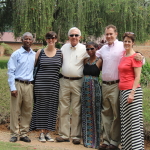
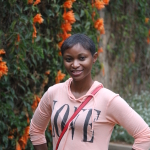
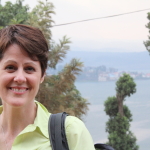
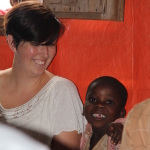
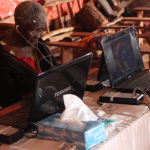
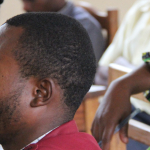
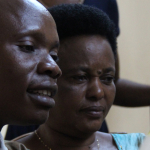
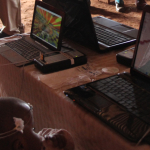
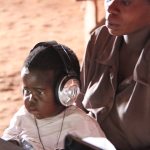
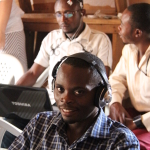
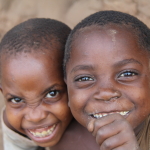
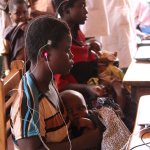
Great website! Thank you for sharing the pictures and experiences of the trip to the Congo – you not only bring healing, but hope to those who need both! Your team, here and in the Congo, will remain in our prayers.